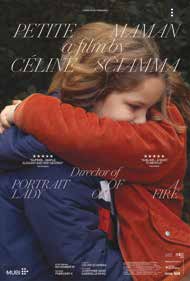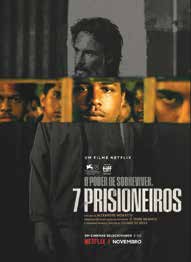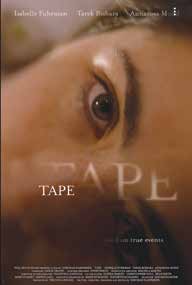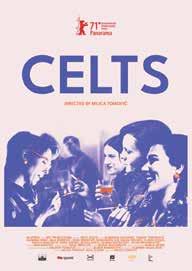
By Gary M. Kramer–
The Mill Valley Film Festival will screen films both in theaters and online October 7–17. There are nearly a dozen features, shorts, and documentaries with LGBTQ interest or talent. Parallel Mothers, and Memoria by out gay filmmakers Pedro Almodóvar and Apichatpong Weerasethakul, respectively, will play at the fest. And queer actresses Kristen Stewart and Tessa Thompson will be showcased in Spencer, and Passing, respectively. The Power of the Dog by Jane Campion, which features a gay storyline, will also screen at the fest. (These films were not available for preview.) Here is a rundown of what to watch:

Out gay filmmaker Todd Haynes’ first non-fiction film, The Velvet Underground, is an outstanding documentary about the seminal band. The director charts the group from its formation to its dissolution, and tells the story in an artful way, opening with discordant music and shooting various segments in the style of an experimental Andy Warhol film. (He uses split screens a la Chelsea Girls, and clips from Warhol’s Screen Tests and Kiss shorts.) And while Haynes does feature plenty of fabulous archival footage from the era, the editing by Affonso Gonçalves and Adam Kurnitz at times mirrors the Velvet Underground’s music, as when the song “Heroin” is played. The dazzling imagery and classic music certainly make The Velvet Underground enthralling to watch, and all of the talking heads in the film—including surviving band members, John Cale and Maureen Tucker, as well as John Waters, Jonas Mekas, Mary Woronov, and Jonathan Richman—are compelling, too. This documentary is not to be missed. (However, anyone who can’t catch it at the Mill Valley Film Festival can see it in theaters and on Apple TV on October 15.)

Petite Maman is lesbian filmmaker Céline Sciamma’s (Portrait of a Lady on Fire) enchanting drama about 8-year-old Nelly (Joséphine Sanz), who has just lost her grandmother. One afternoon, as her parents (Nina Meurisse and Stéphane Varupenne) clean out her grandmother’s house, Nelly meets Marion (Gabrielle Sanz), also 8, and the two become friends. Then some things are revealed that shift the dynamic between the characters, causing viewers to recalibrate the film’s relationships. Full of lovely, natural scenes—such as the girls working together in the kitchen or in the woods—Petite Maman is a slight, austere, and beautifully realized drama.

7 Prisoners,by out gay writer/director Alexandre Moratto, has Mateus (Christian Malheiros) taking a job in São Paulo to earn money for his rural family. However, when he arrives at the junkyard run by Luca (Rodrigo Santoro), Mateus and his fellow workers are enslaved, forced to work off an incurred debt and punished for any transgressions. Mateus makes a series of calculated decisions to survive and possibly escape his dire situation. Shedding light on social issues of poverty, education, power, and human trafficking in Brazil (and elsewhere), this potent absorbing drama is a gritty little nail-biter.

The Novice portrays Alex (Isabelle Fuhrman), a lesbian who joins her college rowing team. But far from being an inspirational sports drama, this intense film, written and directed by Lauren Hadaway, shows how Alex’s obsession for perfection consumes her. This topic is significant; many queer youths and adults strive for perfection in ways that can cause harm. Fuhrman gives a committed performance as this case study in self-destruction shows how Alex sabotages everything and everyone around her, including her relationship with Dani (Dilone).

Celts, set in 1993 Croatia,unfolds almost entirely in Marijana (Dubravka Kovjanić) and Otac’s (Stefan Trifunović) house during a costumed-themed birthday party for their eight-year-old, Minja (Katarina Dimić), who loves the Teenage Mutant Ninja Turtles. While the kids are all playing rowdily in one room, the couple’s friends and adult family members gather in the rest of the house and misbehave. Director/cowriter Milica Tomovic’s captivating film has some terrific observational moments, such as a scene were Minja bonds with her father while he is shaving, or when the young Fica (Konstantin Ilan) catches two men kissing. The film’s queer content is slight, consisting of little more than the aforementioned friskiness between Anka (Milica Grujicic) and Nesa (Slaven Doslo), and a love triangle that has Marijana’s sister, Ceca (Jelena Djokic), jealous that her ex, Zaga (Nada Sargin), brought her new lover Tanja (Jovana Gavrilovic) to the party. However, the minidramas that unfold are involving because Tomovic make viewers care about these ingratiating characters who are eking out life the best they can under the circumstances. A scene between Otac and his brother-in-law, Anka—where the former complains about his wife’s short haircut, and the latter says he likes the boyish look—is sweet, awkward, and absolutely why Celts is so terrific.

Chris J. Russo’s not uninteresting documentary, Lady Buds,profiles six women who work in the cannabis industry in California as marijuana was legalized for recreational use. Some of the growers, like Pearl Moon and Joyce Centrofanti (aka the Bud Sisters), and Chiah Rodriques, have been operating for years. Others, like Karyn Wagner, are newcomers in this booming industry. Lady Buds examines the legal and financial challenges these women face—especially as small farms, which were guaranteed “a head start” over big business mega-growers—become vulnerable when policies are violated. One of the subjects, Felicia Carbajal, is a queer Latinx activist who advocates for equality for minorities, while Sue Taylor, a Black woman planning to open a dispensary in Berkeley, struggles to realize her dream. This modest documentary offers compassionate stories of hopes and setbacks, but it feels like a public service announcement as it points about the difficulties in this business, especially for women in general, and women of color in particular.

The documentary Bernstein’s Wall uses interviews, photographs, archival film clips, and letters to examine the gay composer and conductor’s life and work. The footage of Bernstein teaching and conducting is terrific, but the film itself is unfocused. Director Douglas Tirola traces Bernstein’s early days, and his fraught relationship with his father, to his musical education at the Curtis Institute of Music and Tanglewood, and his first job as assistant conductor for the New York Philharmonic. But the film glosses over Bernstein’s homosexuality—addressed only in snippets from letters he exchanges with his lover Aaron Copeland, and later, Bernstein’s wife, Felicia. Bernstein’s Wall only briefly mentions the composer’s collaborations on the films On the Town and West Side Story and his televised Young People’s Concerts, and music education efforts. Instead, Tirola emphasizes Bernstein’s political activism, shoehorning clips and recordings to provide context on the times. While this work is notable and important, it should have been its own film. Bernstein’s Wall will satisfy fans of this cultural ambassador who want to recall his accomplishments, but it fails to truly illuminate its subject.
God’s Daughter Dances, one of the entries in the festival’s shorts program “The Ocean,”is a marvelous South Korean import about a transgender performer, Shin-mi, who has audiences eating out of the palm of her hand at a nightclub where she dances. However, when she must report for a military service examination, Shin-mi is less appreciated. Her female identity is questioned by one doctor who does not accept her paperwork and insists she “prove” she has had gender reassignment surgery. This engaging short, written by Sungbin Byun, conveys Shin-mi’s discomfort as she is tested, repeatedly, before she becomes empowered.
For tickets, showtimes, venues, and more information on the festival, visit https://www.mvff.com/
© 2021 Gary M. Kramer
Gary M. Kramer is the author of “Independent Queer Cinema: Reviews and Interviews,” and the co-editor of “Directory of World Cinema: Argentina.” Follow him on Twitter @garymkramer
Published on October 7, 2021
Recent Comments